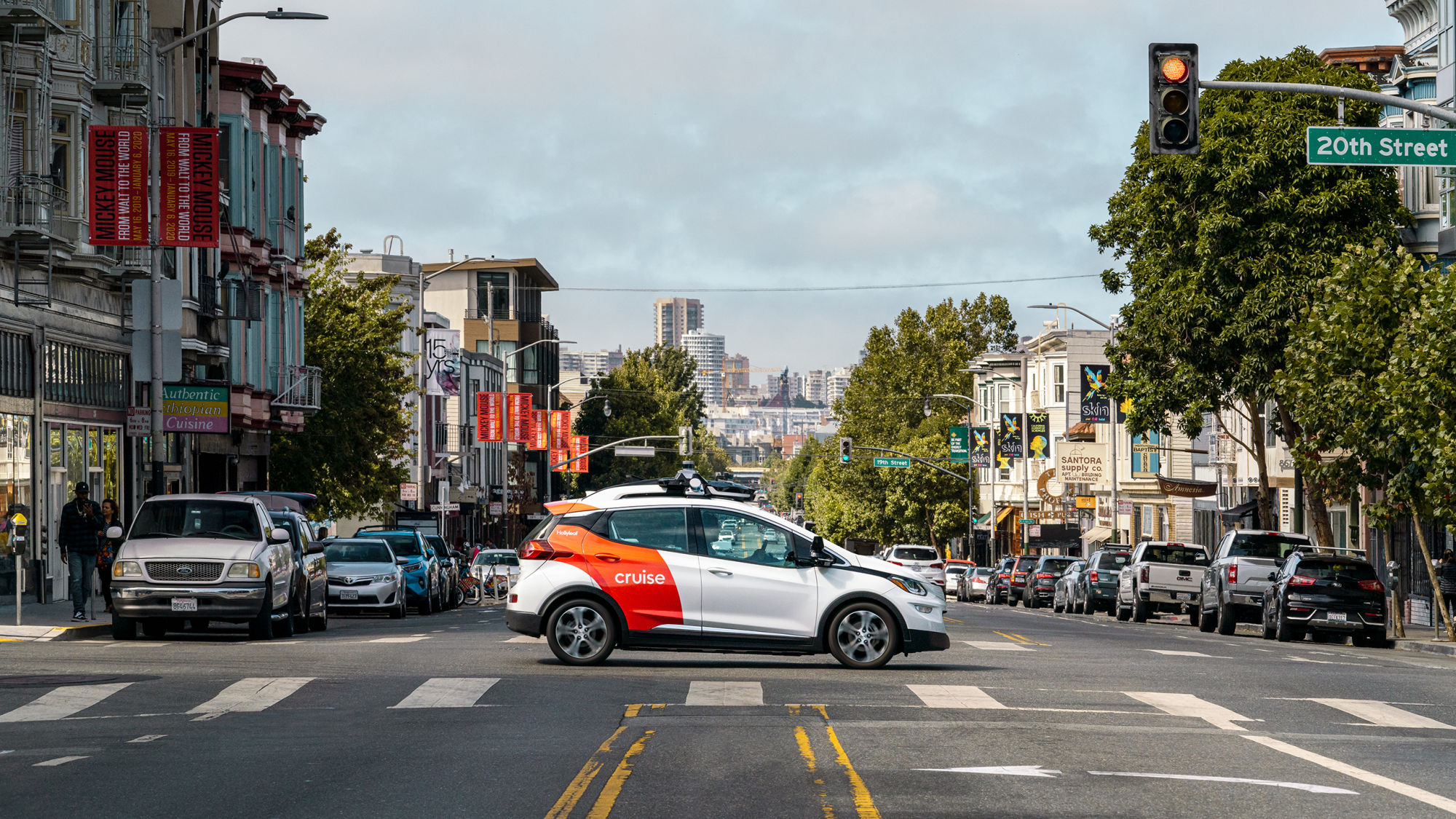GM’s Cruise Authorized To Provide Passenger Robotaxi Service in California
Image source: Cruise
General Motors Company’s (NYSE: GM) majority-owned autonomous car subsidiary Cruise was authorized by the California Public Utilities Commission (CPUC) to provide passenger service to the public in its prototype robotaxis.
On Friday, the CPUC announced that Cruise was issued the first driverless permit through the agency’s Autonomous Vehicle Passenger Service Program. Under the terms the program, Cruise is not allowed to charge fees for the rides and is required to submit quarterly reports about its vehicles, along with a passenger safety plan.
CPUC commissioner Genevieve Shiroma called the permit’s issuance “a significant milestone.”
“Autonomous vehicles have the potential to transform our transportation system and communities by solving individual mobility needs, improving roadway safety, and moving goods throughout the state sustainably and efficiently,” Shiroma said in statement.
“The effective deployment of autonomous vehicles can also transform vehicle manufacturing, maintenance, and service business models to create new jobs and industries for the California workforce."
The permit is one of several regulatory requirements autonomous vehicle developers must meet before deploying commercially.
In California, driverless car companies require separate permits from the Department of Motor Vehicles and CPUC to test and eventually operate autonomous cars commercially in the state.
Cruise, along with six other companies including Alphabet Inc’s Waymo, Baidu Inc and Alibaba-backed AutoX, have permits from the CPUC to conduct driverless car testing in California. All except Cruise are yet not authorized to provide passenger service to the public without a safety driver behind the wheel.
In May, Reuters reported that Cruise and Waymo are both seeking the permits needed to charge for rides and deliveries using autonomous vehicles in San Francisco.
Prashanthi Raman, Cruise’s director of government affairs, told TechCrunch, “Today, we are honored to have been the first to receive a driverless autonomous service permit to test transporting passengers from the California PUC.”
Cruise expects to begin commercial production of its first driverless shuttles in early 2023, according to CNBC.
The company’s current test fleet includes hundreds of Chevrolet Bolt EVs that are equipped with Cruise’s driverless technology.
_____
Source: Equities News




